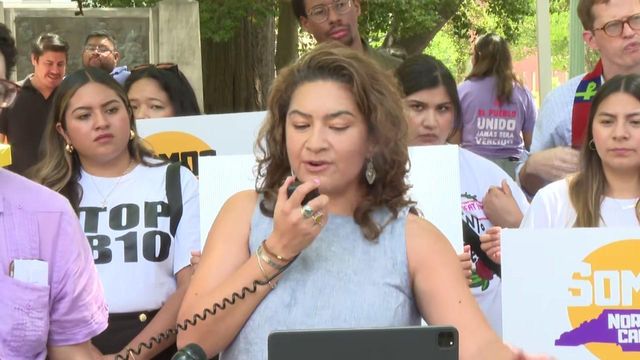Lawmakers unclear on what 'flexibility' districts may get on Read to Achieve

Lawmakers charged with studying education issues have issued a report to the General Assembly that says the state should offer school districts more "flexibility" in a new reading benchmark program, but it's unclear if that leeway will be granted this year.
With lawmakers set to return to work later this month, legislative oversight committees are wrapping up work and making recommendations for legislation that should be taken up. The Joint Legislative Oversight Committee on Education reported Tuesday that lawmakers should consider giving school districts more flexibility with regards to Read to Achieve.
The program, which is championed by Senate Republicans, particularly President Pro Tem Phil Berger, requires students be able to pass a battery of reading assessments by third grade before moving on. After initial problems with the program, lawmakers loosened some of the requirements last year, giving school districts the ability to spread out testing over the entire third grade year.
It's unclear what additional flexibility lawmakers may grant, although the committee heard from educators who have said the program requires too much testing.
"We say in our recommendation that some additional flexibility should be allowed. Will that require legislation to give them (school districts) additional flexibility?" asked Rep. Craig Horn, R-Union.
Committee Chairman Rep. Bryan Holloway, R-Stokes, said that it would. But, he emphasized, there is no specific piece of legislation that the committee is recommending.
Sen. Jerry Tillman, R-Randolph, who has served in senior education policy and budget positions in the Senate, said he was skeptical that any changes would be made in the next year.
"I don't want to mess with it right now," Tillman said after the meeting, saying that he wanted to give the program two more years as is so that data on student achievement can be gathered.
Once the legislature convenes, any lawmaker can file a bill on any topic. However, stiff resistance among leadership can mean bills will be shelved before they are even heard in committee.
The remainder of the committee's report was similarly modest. It included:
- A provision that says the oversight committee will continue to monitoring the budget at Elizabeth City State University. Although the Senate took a tentative step toward closing the university in a draft budget last year, they quickly backed off that plan. Since then, legislators say, the university's leadership has established a financial plan with which the General Assembly is happy.
"We'll let them alone, and if they want to report back, we'll call them," Tillman said.
- The report did included legislation making it easier for retired teachers to come back to work as long-term substitutes. Interactions between the Affordable Care Act, what some people call "Obamacare," and state law could have led to those teachers losing their health coverage. This fix is designed to help school districts fill gaps in the classroom and appears to have bipartisan support. It is due to be introduced later this month or in early February.










